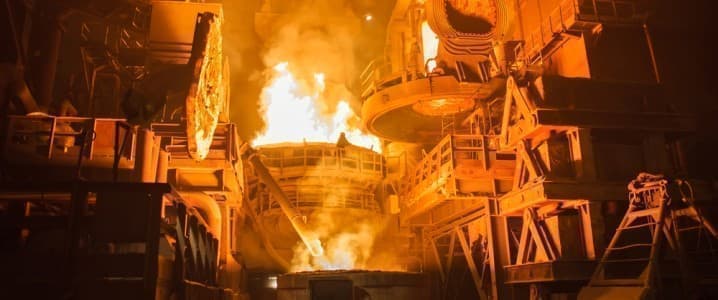Via Metal Miner
Due to numerous obstacles, Nippon Steel’s $14.9 billion proposed acquisition of U.S. Steel has been on hold for nine months. The agreement is currently under investigation from all angles, with heavy resistance from steel industry labor unions and politicians. For manufacturers and procurement specialists involved in the metal supply chain, comprehending the details of this purchase is crucial.
Why is the Deal Facing Roadblocks?
The main barrier to the accord is worries about national security. U.S. Steel provides essential commodities to the automotive, construction and defense industries. And because United States’ infrastructure depends heavily on steel. Therefore, any transfer of ownership to a foreign company—even one as friendly as Japan—raises concerns about the nation’s dependence on foreign suppliers of crucial resources.?
To further complicate matters, labor unions, particularly the United Steelworkers (USW), have vocally opposed the Nippon Steel takeover. The USW instead continues to back Cleveland-Cliffs’ rival offer, which also targets U.S. Steel. American workers consider Cleveland-Cliffs a safer option because it is a local producer with strong union ties. The union is especially worried about how foreign ownership could affect collective bargaining agreements and job security.
Arguments for Letting the Deal Proceed
Despite the opposition, there are also strong arguments supporting the agreement, as it could potentially benefit U.S. Steel and the greater steel industry. Nippon Steel’s commitment to heavily investing in modernizing U.S. Steel’s outdated mills could offer the business a crucial technological boost. With these cutting-edge production techniques, U.S. Steel could reduce production costs, improve operational efficiency and compete more effectively with major international players like India’s Tata Steel and China’s Baowu Steel.
Furthermore, many steel industry observers think worries about foreign ownership are exaggerated because Japan is a significant ally of the United States. They claim that Japan has a long history of investing in the American economy, especially in fields like technology and the automotive industry.
By contributing financial resources and technological know-how, Nippon Steel might contribute to job security and maintain U.S. Steel’s competitiveness in the worldwide market.
For manufacturers and procurement professionals tracking steel prices and supply chains, the deal’s outcome could significantly impact domestic steel pricing. Increased investment from Nippon Steel could mean higher production capacity and a more efficient supply chain, which could ultimately stabilize prices for critical metal products.
The Path Forward: Uncertainty Looms for the Steel Industry
As of September 2024, the acquisition remains uncertain. Many expect President Biden to comment soon, and the CFIUS has yet to issue a final decision. If the deal is blocked, U.S. Steel may face limited options. Cleveland-Cliffs remains interested in buying U.S. Steel, but antitrust concerns would likely arise due to the potential concentration of steel production in a single company.
In the meantime, U.S. Steel continues to invest in its mini-mill operations, such as the Big River Steel plant, which shows promise for future technological advancements and increased production. However, the firm may struggle to compete with international rivals without significant investments in its aging facilities.
Implications for the Metal Supply Chain
For procurement professionals and industry watchers, the ongoing Nippon Steel buyout saga highlights how global steel market dynamics can significantly impact domestic pricing and supply chains. Whether the deal proceeds or not, the decision will likely have long-term implications for the U.S. steel industry.
ADVERTISEMENT
A Nippon Steel acquisition could bring needed modernization and efficiency to U.S. Steel, while a blocked deal could open the door to further consolidation with Cleveland-Cliffs. With MetalMiner’s help, steel sourcing companies can prepare for supply chain disruptions or price volatility. See the MetalMiner metal catalog to see if your steel forms and gauges are covered by MetalMiner’s price forecasting.
By the Metal Miner Team
More Top Reads From Oilprice.com
- U.S. Gasoline Prices Set to Drop Below $3 Before Election Day
- Uzbekistan Leverages Russia's Need for Allies, Secures Discounted Gas
- Why Goldman Sachs is Still Bearish on Lithium


















